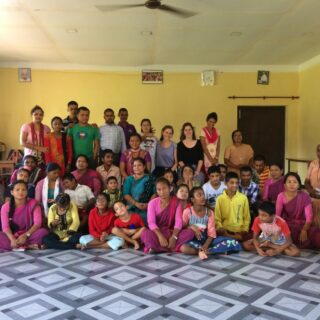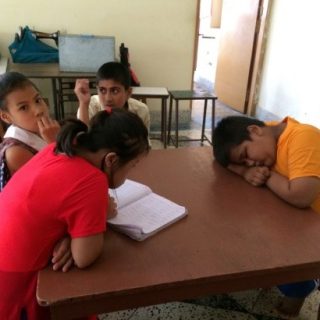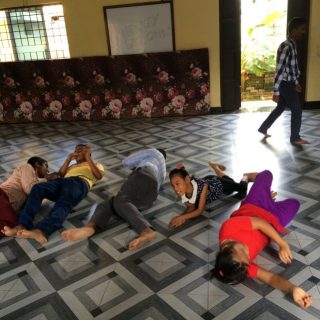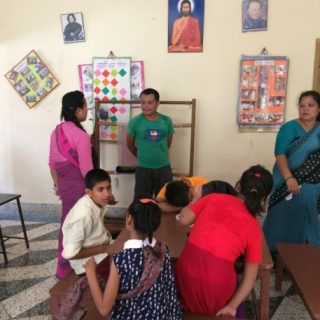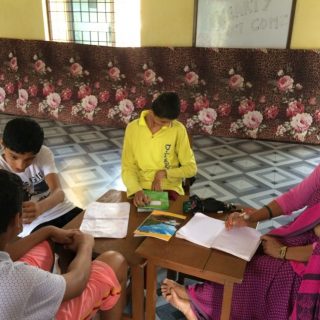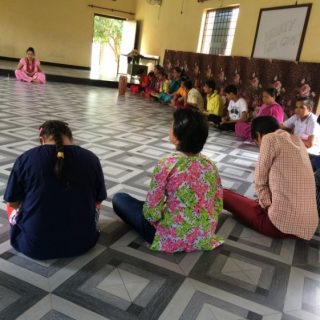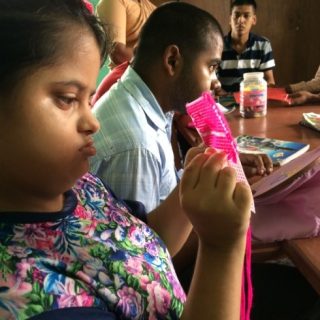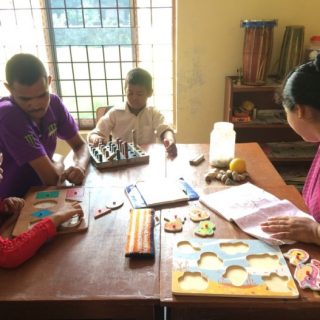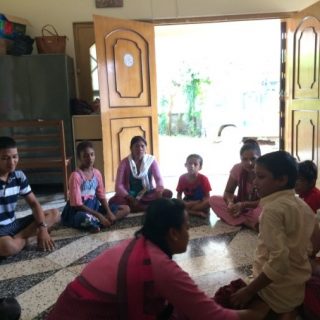A centre for disabled youth in Bhairahawa, Nepal
Project funded
See all projectsChildren of the Mekong has been supporting the centre for disabled children in Bhairahawa in southern Nepal since September 2017. The Sisters of the Congregation of the Cross of Chavanod run this centre. Although they are Indian nationals, they have all been in Nepal for several years. The 45 pupils aged between 6 and 35 years all have physical and learning disabilities. The school’s mission is to make them feel welcome, to teach them some basics, and to equip them with skills like cooking, sewing, needlework and so on.
Disability is not well accepted in Nepal and is often even thought of as “a parent’s burden”. Specialist education is not widespread and parents can be reluctant to spend money educating a child who is “going to be good for nothing”. Acquiring skills with the help of the Sisters gives the pupils at the centre a chance of demonstrating to their families, friends and neighbours that they can in their own way make a useful contribution to society.
The main objectives of the centre are to educate children in the region who have learning disabilities and to facilitate their integration into wider society.
The younger children focus on becoming independent, learning to go to the toilet and to wash, dress and feed themselves without assistance. The pupils over 13 years focus on learning skills like sewing, needlework, arts and crafts, candle making and so on. The young people are encouraged to become as expert as possible in any specific skill in line with their aptitudes, competencies and personal preferences. In addition, they are given responsibility for some simple tasks involved in the upkeep of the centre, like sweeping, cleaning, washing up and gardening. This enables them to make a contribution to family life when they are back home.
Several times a year parents are invited to meet the staff to review their child’s progress and to personalise the programme to their needs. The staff believe that a pupil’s personal development is the fruit of a three-way collaboration between child, teachers and parents – who have a very important role to play in ensuring that children continue to learn when they are at home, and in helping staff to develop a better understanding of the capabilities of every child. Whenever staff think that a child will benefit from the education available in a public school, the parents are strongly encouraged to enrol the child.
